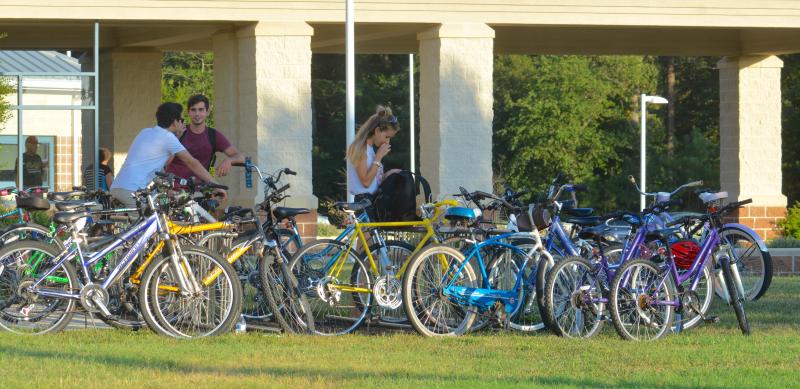International Student Outreach Program canceled

The International Student Outreach Program has been canceled this summer due to COVID-19-related travel restrictions and concerns for the safety of program volunteers.
Maryanne Kauffman, executive director of the program, said the decision was made in mid-May after the Rehoboth Beach-based organization notified the U.S. Department of State. It was announced in late May.
The State Department runs the J-1 visa program, which allows students from foreign countries to come to the United States, including the Cape Region, to work and travel as part of an international learning exchange. The students are placed throughout the country by sponsor organizations, which help them find jobs and housing, and are their primary contact during their stay. ISOP is a local, volunteer-based program that helps students working in the Cape Region by serving meals, providing connections to transportation and organizing activities.
About the same time ISOP decided not to move forward with the program, Gov. John Carney announced the Phase 1 reopening of the state June 1. But Kauffman said the program did not consider waiting because of the close contact ISOP volunteers have with students.
“We were not willing to ask volunteers who have been isolated from family and friends to risk exposure by being with students. All our ISOP gatherings such as dinners, bus trips, and bike classes are with large groups,” she said.
Kauffman said she did not know whether any students had arrived in the Cape Region before Carney issued the stay-at-home order and closed down many businesses to stop the spread of COVID-19. She said some had done visa interviews in their home country prior to government buildings all over the globe closing to the public to slow the spread of the virus.
“They are in a position to travel, as long as their country and ours do not restrict their travel, and their employers still want them,” Kauffman said.
However, sponsor organizations such as New York-based InterExchange and CIEE, which place students in the Cape Region, have encouraged any students who arrived in the United States to return home. In late March, both organizations stopped taking new applications for work and travel in summer 2020.
The U.S. Department of State does not have 2020 data for whether any students are in the United States on J-1 visas. In 2019, Delaware had just more than 2,500 students on the program, 918 of them within the Rehoboth postal district, with an additional 43 in Lewes. Since March, however, the State Department has not been processing new J-1 visa applications
According to a State Department spokesman, the department has not revoked visas due to the pandemic, meaning students with valid J-1 visas could still travel to the U.S., but those visa holders may be refused entry into the country due to entry restrictions imposed by the U.S. government during the pandemic. For any students who do come over, the ultimate responsibility for their health, safety and welfare lies with their sponsor organization.
Another issue for any students who may have made it here is jobs, as many employers who hire students are operating at less than 100 percent capacity. Funland and Jungle Jim’s, which typically employ students in the summer, are closed, with no timetable to reopen. Restaurants have been limited to takeout only since mid-March and only began operating at 30 percent seating capacity on June 1.
Kauffman said in a normal year, the students are very much needed, with so much work out there that students often have more than one job.
“It's important to note that the students bear the cost of their J-1 Summer Work Travel program upfront,” she said. “They have to pay for their sponsor, their visa, their airfare and housing. For them it will be important to work full time and find second jobs. If employers are not in a position to guarantee students the hours they need, then it might not be worth it for them to come, especially since this is already a shorter season for them.”
Kauffman said, “The program is designed for students to spend three months working and one month traveling around the U.S. I don't know how that will be possible at this time.”
She said the hope is that the student outreach program will be able to welcome students next summer.
Ryan Mavity covers Milton and the court system. He is married to Rachel Swick Mavity and has two kids, Alex and Jane. Ryan started with the Cape Gazette all the way back in February 2007, previously covering the City of Rehoboth Beach. A native of Easton, Md. and graduate of Towson University, Ryan enjoys watching the Baltimore Ravens, Washington Capitals and Baltimore Orioles in his spare time.



















































